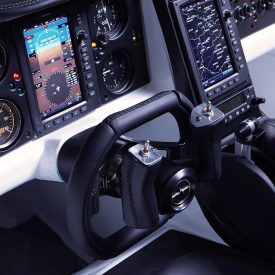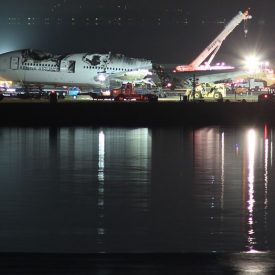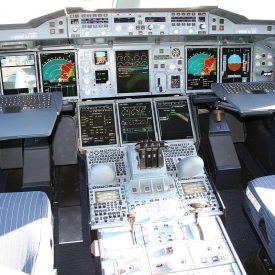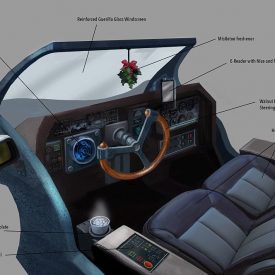In this posting (the first in a three-part series), we share the basics of an important new study into pilot proficiency in automated aircraft. Hopefully, it will get you thinking, and perhaps even sharing your own experience with your fellow professionals. In our next posting, we will highlight what we think is the most important …
 Chris Lutat
Chris Lutat
I recently had the opportunity to drive one of the automobile industry’s most up to date vehicle offerings—complete with systems that gently apply force to the steering wheel to keep the car in the lane it’s established in, to maintain the car at a set distance from the vehicle in front of it, and to …
If there is one single maneuver that each of us should expect to be able to execute on any given flight leg, that involves an understanding of each of the 9 Principles of Automation Airmanship, it is the Go-Around. We’re not talking about the go-around maneuver that each of us practiced in training (you know …
Some accidents stick with us, just refusing to go away. Or maybe some accidents stick with us because we keep finding new ways to learn from them. One of these impactful events that seems to have unusually high resonance is Asiana 214, the Boeing 777 that crashed on landing at SFO during visual flight conditions, …
For over a decade we have been advocating a systematic yet simplified approach to the automated flight deck environment. When we first introduced Automation Airmanship in 2004, we were focused on providing aviation professionals with a sound, disciplined and repeatable methodology to apply to encounters with flight deck technology, from the most rudimentary to the …
For a few months we’ve been writing and commenting on flight deck monitoring, automation bias, and how the human operator can adopt habits and patterns that keep them “in the loop” during high-risk/high-reliability operations on the modern flight deck. Hopefully we have drawn readers into a closer relationship with the equipment they operate. We want …
In the last post, we promised to provide a knowledge-based “do-list” of what to monitor, by phase of flight, every time you fly. Being able to adopt these guidelines, however, presupposes that you have already bought-in to the required “systems knowledge” that allows knowledge-based monitoring to be successful (if you have not, you can review …
One of my most persistent curiosities is in finding a new way to describe something that I thought I knew enough about already. In support of this urge, the journals I subscribe to pile up on my desk weekly, waiting to be opened and scoured for new knowledge that I can apply to my own …
If you are the kind of person who is intent on understanding current industry findings in the context of how it impacts you and your operation, then we have an end-of-the-year retrospective that will give you more than just a “year in review” wrap-up. For over a decade we have been giving voice to the …
One of our goals in maintaining this blog is to help keep the focus of our profession on the flying. This task is increasingly difficult in the face of so much commentary on the future of human-machine interaction, much of it following the high profile aviation accidents of the past 5 years. More than at …









